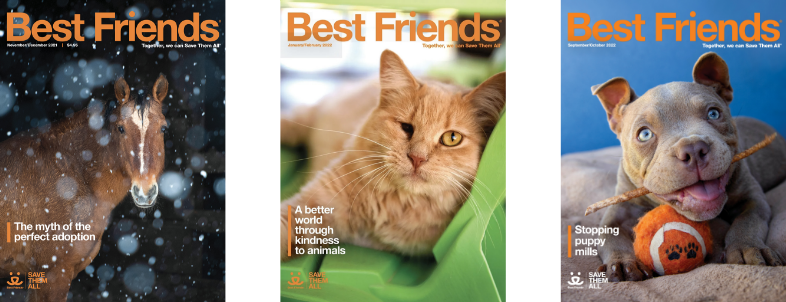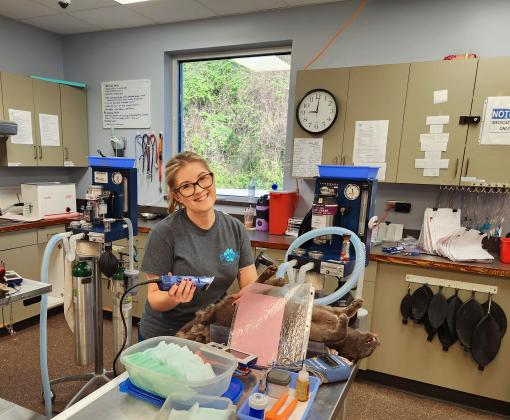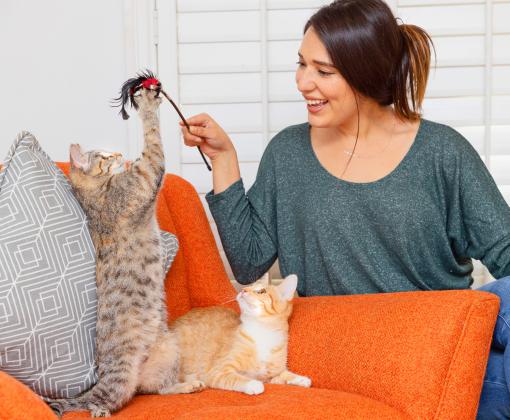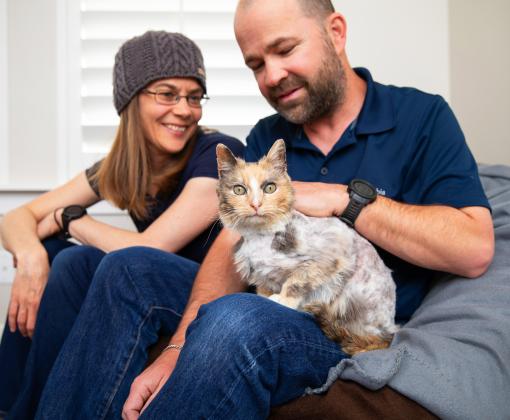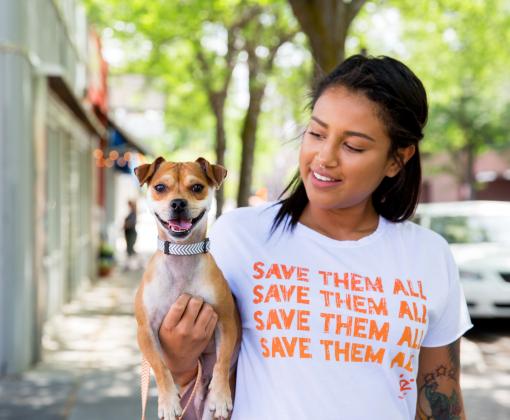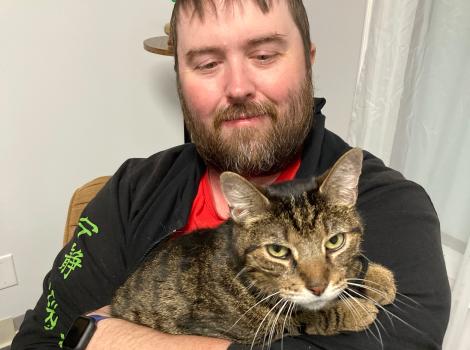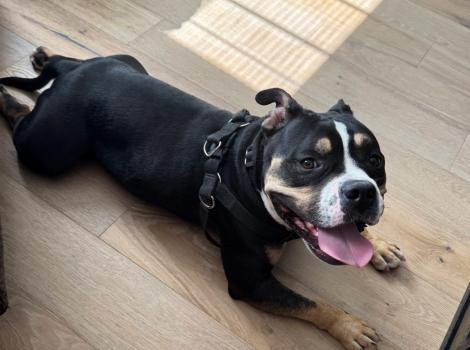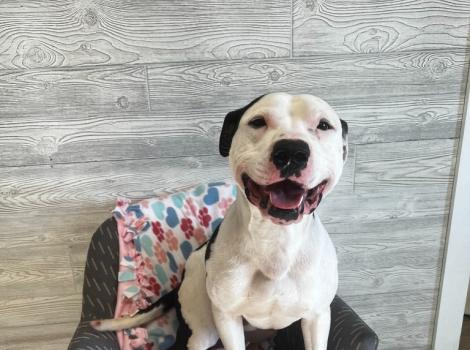Helping people care for their pets in difficult times
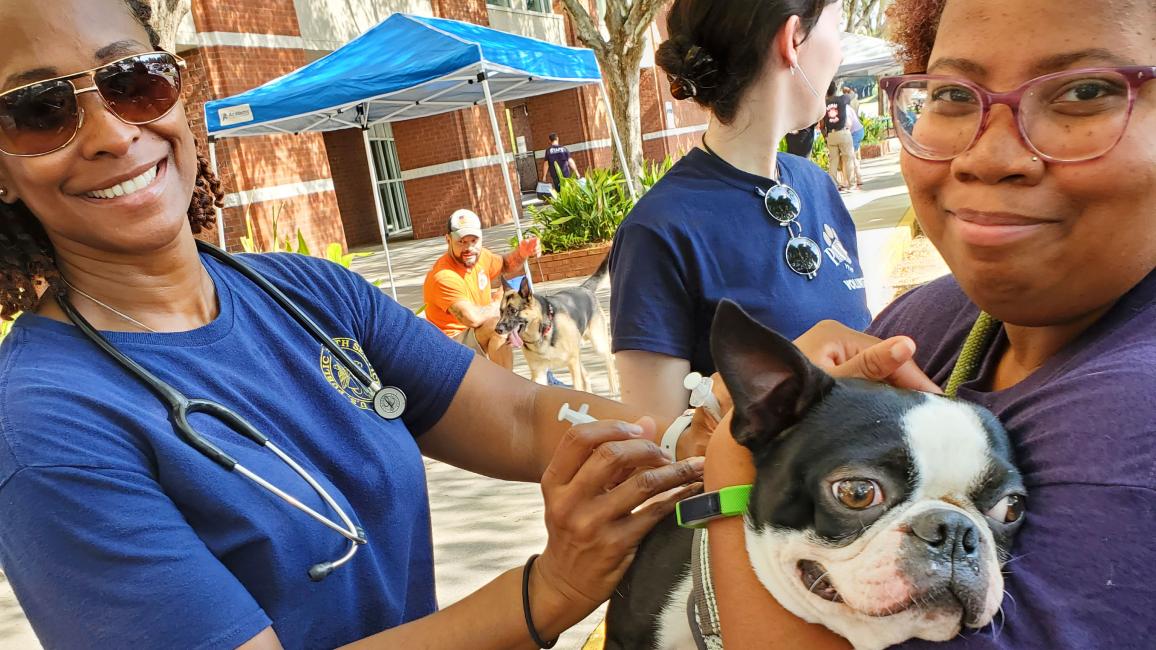
It happens every day all across the United States: Distraught people with dogs and cats contact their local shelters to say they can no longer care for a beloved pet.
In Columbus, Georgia, Ms. Bennett was having trouble with Kywii, her adorable pit bull terrier-like dog, who was possibly pregnant again after escaping from the backyard. Feeling overwhelmed caring for Kywii, who needed to be spayed, and two puppies from a previous litter still residing in the home, she called her local shelter to get on the owner-surrender list.
Across town, Mr. Feemster called in to schedule surrendering his dog, Mittens, citing the reason “cannot keep her.” He had only had Mittens a few months but was having trouble feeding and caring for her on his fixed income, not to mention his own medical issues that prevented him from driving for access to her other needs.
With heavy hearts, they both contacted Columbus Animal Care and Control (CACC), their local animal shelter. But the tight budgets and lean staffs at municipal shelters like CACC often make it impossible to provide the specialized kind of help needed for pets like Kywii and Mittens to remain with their families.
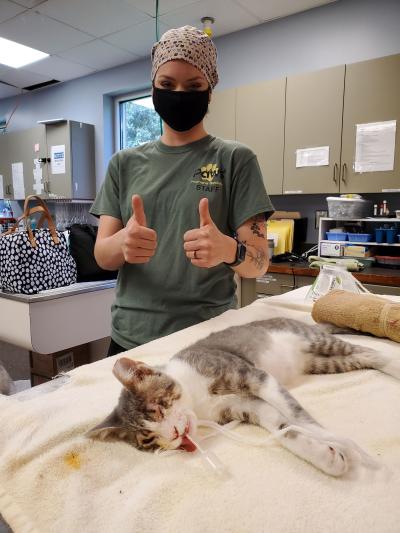
Neighborhood Pet Support program to the rescue
Fortunately for Kywii, Mittens, and hundreds of other pets in Columbus, Georgia, Paws Humane Society’s Neighborhood Pet Support program is there to help. Supported by funding from Best Friends Animal Society, the program makes it possible for more families to keep their pets, while also helping to ensure that pets have good quality of life going forward. Support for Paws Humane Society is just one example of how Best Friends is helping shelters around the country to save more lives and reach no-kill by 2025.
Located next door to each other, CACC and Paws have been working together for the past 18 months. Paws Humane’s Neighborhood Pet Support coordinator collects the names of people on CACC’s owner-surrender list. “Then we begin calling everybody to have longer conversations about why they can’t keep their pets,” says Erin Dodds, director of outreach for Paws Humane. “We identified a need and addressed it with a program that provides proactive help for people having difficulty keeping their pets. Most of our time is spent on communication — getting to the real reason why they want to bring their pet in.”
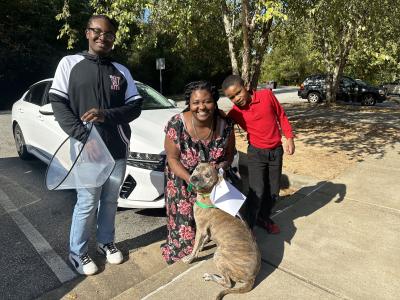
Supporting people to keep their pets
“The biggest issues we come in contact with are medical — where people can’t afford proper medical care for their pets,” says Erin. “Some people are elderly and need help for a variety of issues. There could be a transportation or a financial restraint keeping a person from providing care for their pets.”
Best Friends’ support for the program includes grant funds for Paws to step in and pay for vet bills, which often makes it possible for a pet to stay in a home.
“Many situations we encounter from the owner-surrender list involve housing,” Erin says. “We actually call apartment complexes to let them know we are working with someone to resolve a pet situation. We’ve also paid for several pet deposits so that people could keep their pets.”
People will also sometimes surrender a pet because the dog keeps jumping the fence, which results in repeated citations. It often appears that the easiest remedy is to just surrender the dog.
[Lifesaving soars with new shelter practices]
The Paws program is designed to provide services that help make surrendering pets unnecessary, says Erin. That includes solving pet problems by providing a crate, a safe tethering system, a doghouse, or even fence repair. “And if transportation is an issue, we’ll even deliver items right to the home.”
Once a fence is repaired or another safe containment system installed, a cited person has proof in hand when in court that the situation has been remedied. “It’s also proof that they really do love their pet,” says Erin.
While most leads for owner surrenders come from the CACC list, Erin says about 40% come from animal services officers. “Getting the animal services officers’ personal buy-in into this mission has really made it what it is. They are not required to refer people to us,” she says. “But over time we’ve built a relationship (that makes them want to help) by getting in there talking to them person to person. We appreciate their help and want them to feel supported, so they know they can depend on us to help people out.”
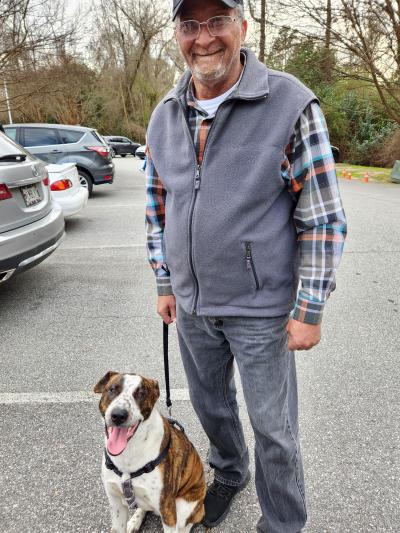
Problems solved, pet surrenders avoided
Since beginning to work with CACC on owner-surrendered pets in June 2022, Paws reports that the Neighborhood Pet Support program has helped approximately 600 people (and pets) stay together so far. From securing pet-friendly housing to purchasing various physical accoutrements for pets in need, more pets are remaining at home.
Kywii and Mittens? After a phone call from Paws with an offer of help, both are doing just fine, thanks.
Kywii was brought in for her spay surgery and vaccinations. But as it turns out, vets discovered that she had pyometra, a very serious infection female dogs can get if they are not spayed and that, if left untreated, can be fatal. The Neighborhood Pet Support program made it possible for Kywii to have immediate surgery, followed by antibiotics and intravenous fluids.
[Helping small animal shelters has a big impact]
“She is healthy and still in her home,” says Erin, “and we are continuing to provide medical services as long as she needs them.
Mittens, too, is still at home. She got free transportation from a neighbor to visit Paws’ on-site veterinary clinic, where she received the care she needed. The neighbor says she’s noticed how much Mittens is loved. Paws has provided Mittens with her spay surgery, vaccines, microchip, a crate, pet food, and other supplies.
“Kywii, Mittens, and other dogs like them would have been euthanized strictly for capacity at our overcrowded municipal shelter,” says Erin. “But they are well and happy in their homes. Our program is making a difference.”
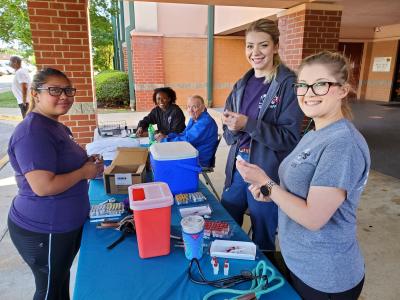
This article was originally published in the May/June 2024 issue of Best Friends magazine. Want more good news? Become a member and get stories like this six times a year.
Let's make every shelter and every community no-kill by 2025
Our goal at Best Friends is to support all animal shelters in the U.S. in reaching no-kill by 2025. No-kill means saving every dog and cat in a shelter who can be saved, accounting for community safety and good quality of life for pets.
Shelter staff can’t do it alone. Saving animals in shelters is everyone’s responsibility, and it takes support and participation from the community. No-kill is possible when we work together thoughtfully, honestly, and collaboratively.
